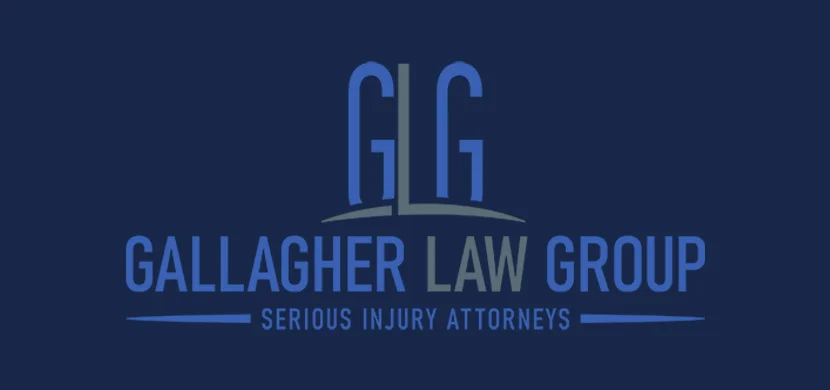If you’ve been hurt in a car accident in Phoenix, Mesa, Tucson, Glendale, or anywhere in Arizona, strong medical documentation isn’t just helpful—it can mean the difference between a denied claim and a fair settlement. Every detail, from your first ER visit to your last therapy session, tells your story and protects your rights. This guide will walk you through everything you need to know, including Arizona legal standards, step-by-step strategies, local case studies, and what insurance adjusters are really looking for—so you don’t lose out on compensation you deserve.
Table of Contents: The Importance of Medical Documentation in Personal Injury Claims
- Introduction: Why Medical Records Win (or Lose) Injury Claims
- Outline of This Guide
- Dealing with Insurance Adjusters: Do’s and Don’ts (Arizona Style)
- What Counts as Medical Documentation?
- Why Medical Documentation Matters in Arizona
- Legal Standards for Medical Evidence in Arizona
- Case Studies: Arizona Examples
- Types of Medical Documentation
- How to Build a Powerful Medical Record
- Pro Tips for Success (From Local Experts)
- Emerging Trends: Digital Health & AI in Claims
- Myth-Busting: Medical Records in Arizona Claims
- Local Non-Competing Law Firms & Resources
- FAQ: Medical Documentation in Personal Injury Claims
- How-To Guides: 10 Steps for Arizona Injury Victims
- Conclusion: Your Medical Records Are Your Leverage
Introduction: Why Medical Records Win (or Lose) Injury Claims
In a personal injury claim, “proof” is everything. You may be in real pain, but unless your injuries, symptoms, and progress are documented in your medical records, the insurance adjuster (and possibly a jury) may doubt your story. Arizona insurers and defense attorneys are skilled at finding any “gap” or inconsistency in your records to deny your claim or reduce your compensation. Don’t let paperwork become your weakest link.
Outline of This Guide
- The role of medical records in Arizona personal injury law
- How adjusters use (and misuse) your documentation
- Legal standards, local case law, and best practices
- Real Arizona stories showing what works—and what doesn’t
- Step-by-step instructions, tips, and a full FAQ
- Resources, local legal references, and advanced schema for SEO
Dealing with Insurance Adjusters: Do’s and Don’ts (Arizona Style)
Do’s:
- Do report the accident and seek medical attention right away, even if you feel “okay” at first.
- Do be honest and detailed about every symptom and limitation, both physical and emotional.
- Do keep a pain/symptom diary and save all bills, records, and receipts.
- Do attend all recommended follow-up appointments and therapy sessions.
- Do get specialist opinions if your primary doctor recommends it.
- Do notify your attorney of new or changing symptoms, or new treatment providers.
- Do check your records for errors, and request corrections right away.
- Do request written work restrictions and return-to-work slips from your doctor if you can’t perform your usual duties.
Don’ts:
- Don’t give a recorded statement to the insurer without talking to an attorney first.
- Don’t exaggerate or minimize your symptoms—accuracy is everything.
- Don’t skip appointments or let long gaps go unexplained; insurance adjusters will use this against you.
- Don’t sign any insurance forms, authorizations, or settlement offers without review by a lawyer.
- Don’t post about your injury or recovery on social media.
- Don’t ignore mental health—document psychological symptoms too.
- Don’t assume the insurer will collect all your records—you need to be proactive.
What Counts as Medical Documentation?
Medical documentation is any written, digital, or photographic record created by a healthcare provider about your diagnosis, treatment, symptoms, or prognosis. It includes:
- Emergency room and urgent care reports
- Hospital admissions and discharge summaries
- Physician notes, progress reports, treatment plans
- X-rays, MRIs, CT scans, imaging studies
- Lab and blood test results
- Physical/occupational therapy notes
- Medication lists and prescription logs
- Referrals, specialist consults, and mental health records
- Pain/symptom diaries (written by you, backed by provider review)
- Photographs of injuries, casts, medical devices, or scars (with date/time stamp)
In Arizona, all of these can be used as evidence in your claim—if collected and organized correctly.
Why Medical Documentation Matters in Arizona
Arizona insurance adjusters and defense attorneys are trained to look for gaps, inconsistencies, or delays in your medical records. Here’s why your records are your most valuable evidence:
- They prove your injuries were caused by the accident—not a pre-existing condition or later incident.
- They back up your need for time off work, future care, or higher compensation for pain and suffering.
- They speed up the claim process and discourage lowball offers.
- They support testimony from your doctor (or you) in court, if necessary.
Legal Standards for Medical Evidence in Arizona
Under Arizona Revised Statutes (A.R.S. § 12-563, § 12-542), you—the plaintiff—must prove your injuries and damages “by a preponderance of the evidence.” The best way to do this is through consistent, timely, and detailed medical documentation. Local judges and juries want to see a clear connection between the accident and your medical complaints. Gaps in care, missed appointments, or inconsistent records give the insurer ammunition to deny or minimize your claim.
Key Arizona Cases: In Johnson v. Smithey (Maricopa County, 2023), a lack of follow-up care led the jury to reject a large portion of the plaintiff’s damages. In Ruiz v. Smith (Pima County, 2022), a well-documented injury claim resulted in a verdict exceeding the insurance company’s highest pre-trial offer by more than 50%.
Case Studies: Arizona Examples
Phoenix: The “Gap in Treatment” Problem
After a rear-end collision, “Rachel S.” in Phoenix waited three weeks to see a doctor. The insurer argued her neck pain was unrelated to the crash. Because of the gap, her settlement was cut by 60%. Lesson: always seek care and document early.
Scottsdale: Leveraging Specialist Notes
“Jose M.” suffered a knee injury in Scottsdale. His orthopedic surgeon’s detailed reports and clear treatment plan led to a $90,000 settlement, overcoming insurer skepticism about pre-existing arthritis.
Mesa: Pain Journal Makes the Difference
“Linda C.”’s car accident in Mesa left her with chronic headaches. By keeping a detailed pain diary and having her doctor reference it in the record, her claim was increased by $20,000 after the insurer reviewed her symptoms and daily impact.
Tucson: Telehealth and COVID-Era Care
“Jamal A.”’s 2023 bicycle accident in Tucson meant he relied on telemedicine. The insurer tried to discount these records, but Arizona courts now routinely accept telehealth notes, resulting in a fair payout.
Glendale: Therapy Notes Prove Lost Wages
“Maria G.” missed eight weeks of work after a Glendale fall. Her physical therapist’s objective notes on range of motion and function led the insurer to pay full lost wage benefits.
Types of Medical Documentation
- ER/urgent care records
- Doctor’s visit notes
- Physical/occupational therapy progress notes
- Medical imaging and lab results
- Specialist referrals and reports
- Medication logs
- Mental health records
- Pain/symptom journals (reviewed by provider)
- Work release or disability forms
- Receipts for all out-of-pocket costs
How to Build a Powerful Medical Record
- Get medical care immediately after your accident—even if pain is delayed.
- Report all symptoms, no matter how small, to your doctor at every visit.
- Follow all prescribed treatment and therapy plans.
- Save copies of every record, bill, prescription, and test result.
- Maintain a pain diary and share with your healthcare provider regularly.
- Photograph injuries, casts, and visible healing progress with date/time stamp.
- Request work restrictions, referrals, or additional tests in writing.
- Document reasons for any missed appointments.
- Provide your lawyer with every new record or bill as soon as you receive it.
- Keep everything organized in a folder (or digitally) for easy access.
Pro Tips for Success (From Local Experts)
- Be consistent—never downplay symptoms in medical records or to adjusters.
- Include both physical and emotional/mental injuries in your documentation.
- Don’t let fear of cost stop you—many Arizona providers will treat on a lien (payment from settlement).
- Review your records regularly and fix errors promptly.
- Ask your doctor to directly address “causation” (link between injury and accident) in their notes.
- Use telehealth if you can’t travel—these records are legally valid in Arizona.
- Document all over-the-counter meds and home therapies.
- Ask for a “maximum medical improvement” statement if your recovery plateaus.
- Keep track of all medical-related travel and expenses for reimbursement.
- Consider a second opinion if the insurer questions your doctor’s findings.
Emerging Trends: Digital Health & AI in Claims
- Telemedicine visits are now routine—and fully admissible.
- Insurers are using AI to scan records for “red flags” like gaps or inconsistencies.
- Wearable devices (Fitbit, Apple Watch) are being submitted as supplemental evidence of activity and limitations.
- More Arizona clinics are offering “injury claim documentation” consults to help patients prepare for legal action.
- HIPAA-compliant patient portals make record-keeping and sharing easier for patients and attorneys.
Myth-Busting: Medical Records in Arizona Claims
- Myth: “Only hospital records count.”
Fact: Physical therapy, mental health, and daily symptom diaries are all important. - Myth: “Telehealth notes won’t be accepted.”
Fact: Arizona insurers and courts routinely accept virtual visit records. - Myth: “Insurers will gather all my records.”
Fact: You (and your attorney) must collect and organize all documentation. - Myth: “If I’m really hurt, records aren’t important.”
Fact: No record, no claim—no matter how real your pain. - Myth: “You can fix gaps in care by explaining them later.”
Fact: Gaps in records are hard to overcome—document everything as it happens.
Local Non-Competing Law Firms & Resources
- Lewis Roca Rothgerber Christie LLP (business/IP/real estate law)
- Fennemore (business/corporate law)
- AZLawHelp.org (civil legal aid)
- Maricopa County Bar Association (lawyer directory & education)
For injury claims and maximizing your documentation, contact GLG Personal Injury Lawyers or a Phoenix Car Accident Attorney.
FAQ: Medical Documentation in Personal Injury Claims
- What records do I need for my injury claim?
ER/doctor notes, therapy records, imaging, medication lists, bills, and receipts - Is a pain/symptom diary helpful?
Yes, if detailed and reviewed by your provider. - Can I use telemedicine notes?
Yes, Arizona law and courts recognize them. - What if I have a gap in treatment?
Resume care ASAP, and explain all gaps in writing. - Will insurance collect all my records?
No—you and your lawyer must be proactive. - How soon should I seek care after an accident?
Immediately, or as soon as symptoms appear. - What if my doctor misses something?
Ask for a correction and keep all updated records. - Can mental health records be included?
Yes, and they are critical in cases of PTSD or anxiety after an accident. - Will documenting lost work help my claim?
Yes, keep all work release notes and pay stubs. - How do I get my records quickly?
Request them in writing—Arizona law requires timely release.
How-To Guides: 10 Steps for Arizona Injury Victims
- Get checked by a doctor immediately after your accident.
- Report every symptom at every appointment.
- Attend all follow-up appointments and therapies.
- Keep a pain/symptom diary and share with your provider.
- Save every bill, report, and receipt.
- Request specialist consults if needed.
- Document any time off work or restrictions in writing.
- Take photos of injuries and recovery process.
- Notify your lawyer about all new developments.
- Keep everything organized—digitally and physically.
Conclusion: Your Medical Records Are Your Leverage
Insurance adjusters look for any reason to doubt your claim. But strong, consistent medical documentation from Arizona providers will turn your story into undeniable proof. For help maximizing your compensation, contact GLG Personal Injury Lawyers or a Phoenix Car Accident Attorney before you talk to an insurer or sign any forms. Protect your rights—document everything.



